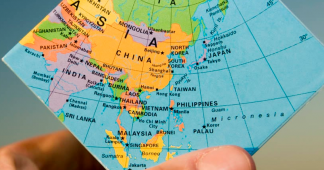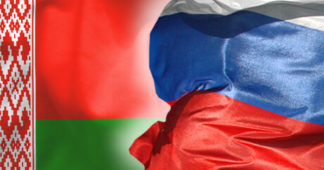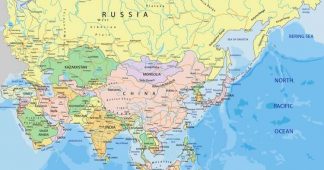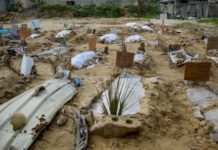By Darwis Khudori
Executive editor of Bandung Spirit Bulletin, architect, historian, Indonesia/France
Like a Big Bang generating stars, planets, comets, meteors… the 1955 Bandung Conference generated conferences, cultural festivals, social and solidarity movements, associations/organisations/institutions, business fora, research institutes, study centres, academic periodicals, news magazines… up to the present day. See the non-exhaustive list of activities, organisations and publications emerging progressively following the Bandung Conference*).
All these formed what may be called “Bandung Constellation”. Why not “Galaxy”, which is a logical follow-up of a Big Bang? Because a galaxy is based on a system, with its core (black hole), its components (stars, planets, comets, meteors…) and its law (gravitation). While a constellation is based on an imagination: a group of stars that forms an imaginary profile in the sky (such as Andromeda/the Chained Maiden, Apus/The Bird of Paradise, etc.). Moreover, a star alone cannot make a constellation. Only together with others, a star can contribute to the formation of a constellation. So, it seems that “constellation” is an appropriate term for the growing universe of associations, publications, initiatives, academic, social and solidarity movements, which is not based on a “system” but on “diversity” of systems that co-exist peacefully. And this constellation may be called “Bandung”, because it was formed following the 1955 Bandung Conference and continue to grow around the ideals of Bandung Spirit. The “Bandung Spirit” itself has never been formulated and, as a “spirit”, seems to be impossible or unnecessary to be formulated. Nevertheless, it may be represented by key words extracted from the Bandung Principles: 1) Peace (peaceful co-existence among diverse political and economic systems, cultures, ecologies, religions, human beings, animals, vegetation, nature); 2) Independence (freedom, self-determination, national, people’s and state’s sovereignty liberated from the hegemony of superpowers and any kind of domination, invasion, interference by others); 3) Equality (among races, nations, ethnic groups, gender, religions); 4) Solidarity (towards the colonised, oppressed, dominated, poor, weak, handicapped, disadvantaged through cooperation among peoples, nations, states); 5) Emancipation (based on people’s interests individually and collectively and sustainable perspective locally and globally). If the Bandung ideals of Independence, Equality and Solidarity may find their affiliation in the French Revolution ideals of Liberté, Egalité and Fraternité, then Bandung Spirit has enriched the spirit of French Revolution with two key words: Peace and Emancipation. And these ideals are not separated from the internationally shared principles. The Bandung Principles were linked officially to the UN Declaration of Human Rights and the UN Charter as their supreme references.
Within this context, 2005 is a key date. For the first time the anniversary the Bandung Conference was commemorated by “non-state” actors in divers parts of the world: Brazil, Egypt, India, Sri Lanka, Indonesia, Thailand, USA, Japan, Mali… This may be explained by the fact that during the struggle for national independence and the Cold War, the political leaders (of the former colonised countries of Africa, Asia, Latin America and the Caribbean) were the representation of their peoples’ dreams. However, post-colonial development, especially since 1970s, has made appear the distinction between the aspirations of the peoples and the interests of the governments. The end of the Cold War has accentuated this separation, while the course of economic globalisation has provoked the emergence and the growth of transnational social and solidarity movements, not only in the former colonised world, but also in the former colonising countries. The “Bandung Spirit” as the key manifestation of the rise of the dominated humanity and their aspiration to global peace and justice has been quoted by many of those movements as their reference. The legacy of the Bandung Conference does therefore not only belong to the states, but also to the peoples beyond national boundaries. Nevertheless, the activities based on Bandung Spirit organised by scholars, peoples or civil society organisations should not be seen as competitors or opponents of the states or governments, but as expressions of peoples’ participation in the collective search for alternatives to the present course of globalisation.
This bulletin is a part of those movements, as a modest contribution to the formation of an imagined Bandung constellation of global future around the common ideals of Bandung Spirit. Published by scholars and activists of social and solidarity movements, based on volunteerism, it is aimed at: 1) Strengthening and consolidating the movements; 2) Informing and learning each other among members of the movements; 3) Documenting individual and collective experiences, ideas, thoughts, and reflections related to the movements; 4) Informing the public about the activities of the movements.
Prepared and presented by an editorial board consisting of socially engaged scholars and activists, all volunteers, this bulletin is available online for free and open to any contribution.
May the Bandung Spirit Bulletin be useful and meaningful for readers and contributors.
* BANDUNG CONSTELLATION
A constellation of conferences, organisations, academic studies, academic journals, news media… were formed progressively around the ideals of Bandung Spirit. In term of conferences, for example, Asian-African Student Conference, Asian-African Writer Conference, Asian-African Journalist Conference, Conferences of Cairo, of Conakry, of Belgrade (Non-Alignment), of Moshi, of Havana (Tricontinentale), the regular summits of NAM, etc. In terms of organisation, for example, AAPSO (Afro-Asian People’s Solidarity Organisation), JAALA (Japan Asia Africa Latin America) Solidarity Committee, the Soviet Afro-Asian Solidarity Committee, OSPAAAL (Organisation of Solidarity of the People of Asia, Africa and America Latine), NAM, OAU (Organisation of African Unity) then AU (African Union), UNCTAD (United Nations Conference on Trade and Development), G77, South Centre, TICAD (Tokyo International Conference on African Development), FOCAC (Forum on China–Africa Cooperation)… etc. In academic studies, for example, Graduate School of Asian and African Area Studies (Kyoto University, Japan), Research Institute for Languages and Cultures of Asia and Africa (Tokyo University, Japan), Ferguson Centre for African and Asian Studies (USA), Institute of Asian and African Studies (Moscow, Russia), Centre for African and Asian Studies (Great Zimbabwe University), Asian and African Cultural Studies Certificate (St. John University, USA), Institute of Asian and African Studies (The Hebrew University of Jerusalem), Department of Asian and North African Studies (Ca’ Foscari University of Venice), Asien-Afrika-Institut (Universität Hamburg, Germany), Department of African and Asian Studies (Nnamdi Azikiwe University Awka, Nigeria), Department of African and Asian Studies (University of Khartoum, Sudan), Faculty of Asian and African Studies (Saint-Petersburg State University, Russia), etc. In term of academic journals, for example, African and Asian Studies (Brill, the Netherlands), Asian and African Studies (Slovak Academy of Sciences in Bratislava, Slovakia). Journal of Asian and African Studies (SAGE, UK), Journal of Asian and African Studies (Tokyo University), Asia and Africa today (Russian Academy of Sciences, Russia), Journal of Identity, Culture & Politics: An Afro-Asian Dialogue (CODESRIA, Senegal), Solidarity and Peace Journal of AAPSO Nepal (Nepal)… etc. In term of news media, there is Afrique-Asie Magazine.
https://bandungspirit.org/IMG/pdf/bsb-issue-1-24-avril-2021_compressed.pdf








